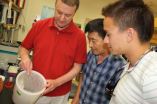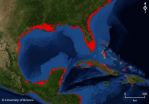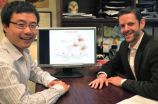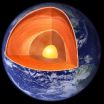(Press-News.org) Fairbanks, Alaska—Until now, scientists were uncertain about how much and where in the world terrestrial carbon is being stored. In the July 14 issue of Science Express, scientists report that, between 1990 and 2007, the world's forests stored about 2.4 gigatons of carbon per year.
Their results suggest that forests account for nearly all of the world's land-based carbon uptake. Boreal forests are estimated to be responsible for 22 percent of the carbon stored in the forests. A warming climate has the potential to increase fires and insect damage in the boreal forest and reduce its capacity to sequester carbon.
"Our results imply that clearly, forests play a critical role in Earth's terrestrial carbon balance, and exert considerable control over the evolution of atmospheric carbon dioxide," said A. David McGuire, co-author and professor of ecology at the University of Alaska Fairbanks Institute of Arctic Biology and co-leader of the USGS Alaska Cooperative Fish and Wildlife Research Unit.
The report includes comprehensive estimates of carbon for the world's forests based on recent inventory data. The scientists included information on changes in carbon pools from dead wood, harvested wood products, living plants and plant litter, and soils to estimate changes in carbon across countries, regions and continents that represent boreal, temperate and tropical forests.
The authors note that understanding the present and future role of forests in the sequestration and emission of carbon is essential for informed discussions on limiting greenhouse gases.
###
ADDITIONAL CONTACTS: A. David McGuire, professor of landscape ecology, Institute of Arctic Biology, USGS Alaska Cooperative Fish and Wildlife Research Unit, 907-474-6242, admcguire@alaska.edu
NOTE TO EDITORS: Email is the best method for contacting McGuire. The paper, "A Large and Persistent Carbon Sink in the World's Forests," is available at http://www.sciencemag.org/content/early/2011/07/13/science.1201609.
Other authors include scientists from the USDA Forest Service in Newtown Square, Penn.; Key Laboratory for Earth Surface Processes, Ministry of Education, Peking University, Beijing; State Key Laboratory of Vegetation and Environmental Change, Institute of Botany, Chinese Academy of Sciences, Beijing; Woods Hole Research Center; University of Helsinki; Natural Resources Canada, Canadian Forest Service, Victoria; School of Geography, University of Leeds; International Institute for Applied Systems Analysis (IIASA), Austria; Global Carbon project, CSIRO Marine and Atmospheric Research, Canberra, Australia; Laboratoire des Sciences du Climat et de l'Environnement (LSCE) CEA-UVSQ-CNRS, Gif sur Yvette, France; Duke University; Princeton University; U.S. Geological Survey, Alaska Cooperative Fish and Wildlife Research Unit, University of Alaska Fairbanks; Oak Ridge National Laboratory.
World's forests' role in carbon storage immense, profound
2011-07-19
ELSE PRESS RELEASES FROM THIS DATE:
Scientists seek to increase science literacy
2011-07-19
Fairbanks, Alaska—A scientist at the University of Alaska Fairbanks and colleague at Emory University are seeking to persuade the National Science Foundation to reevaluate its decision to cancel a program that has placed 10,000 science graduate students in more than 6,000 K-12 public schools across the country.
In an editorial in the July 15 issue of the journal Science, UAF biology professor Richard Boone and Emory University professor Pat Marsteller advocate for developing an enhanced version of NSF's Graduate Science, Technology, Engineering and Mathematics Fellows ...
Making blood-sucking deadly for mosquitoes
2011-07-19
Mosquitoes die soon after a blood meal if certain protein components are experimentally disrupted, a team of biochemists at the University of Arizona has discovered.
The approach could be used as an additional strategy in the worldwide effort to curb mosquito-borne diseases like dengue fever, yellow fever and malaria.
When the researchers blocked a cellular process known as vesicle transport, on which the mosquitoes rely to release digestive enzymes into the gut among other functions, it caused the affected animals to die within two days of blood feeding.
"The idea ...
Rising oceans -- too late to turn the tide?
2011-07-19
Thermal expansion of seawater contributed only slightly to rising sea levels compared to melting ice sheets during the Last Interglacial Period, a University of Arizona-led team of researchers has found.
The study combined paleoclimate records with computer simulations of atmosphere-ocean interactions and the team's co-authored paper is accepted for publication in Geophysical Research Letters.
As the world's climate becomes warmer due to increased greenhouse gases in the atmosphere, sea levels are expected to rise by up to three feet by the end of this century.
But ...
NYU Langone Medical Center's tip sheet to the 2011 Alzheimer's Association International Conference
2011-07-19
NEW YORK, July 16, 2011 – Experts from the Center of Excellence on Brain Aging at NYU Langone Medical Center will present new research at the 2011 Alzheimer's Association International Conference on Alzheimer's disease to be held in Paris, France from July 16 – 21. Of particular interest is the presentation about mild cognitive impairment in retired football players, with Stella Karantzoulis, PhD, and the selected "Hot Topics" presentation about a new experimental approach to targeting amyloid plaques, with Fernando Goni, PhD. Each presentation is embargoed as noted below.
The ...
Newer techniques are making cardiac CT safer for children
2011-07-19
Coronary computed tomography angiography (CTA) has excellent image quality and diagnostic confidence for the entire spectrum of pediatric patients, with significant reduction of risk with recent technological advancements, according to a study to be presented at the Sixth Annual Scientific Meeting of the Society of Cardiovascular Computed Tomography (SCCT) in Denver, July 14-17.
"Traditionally, pediatric patients who require coronary artery imaging have undergone a cardiac catheterization, which is an invasive procedure with a significant radiation dose, requiring sedation ...
NYU researchers develop compound to block signaling of cancer-causing protein
2011-07-19
Researchers at New York University's Department of Chemistry and NYU Langone Medical Center have developed a compound that blocks signaling from a protein implicated in many types of cancer. The compound is described in the latest issue of the journal Nature Chemical Biology.
The researchers examined signaling by receptor tyrosine kinase (RTK). Abnormal RTK signaling is a major underlying cause of various developmental disorders and diseases, including many forms of cancer. RTK signaling pathway employs interactions between proteins Sos and Ras, and accounts for a broad ...
Researchers provide means of monitoring cellular interactions
2011-07-19
Boston, MA – Using nanotechnology to engineer sensors onto the surface of cells, researchers at Brigham and Women's Hospital (BWH) have developed a platform technology for monitoring single-cell interactions in real-time. This innovation addresses needs in both science and medicine by providing the ability to further understand complex cell biology, track transplanted cells, and develop effective therapeutics. These findings are published in the July 17 issue of Nature Nanotechnology.
"We can now monitor how individual cells talk to one another in real-time with unprecedented ...
What keeps the Earth cooking?
2011-07-19
What spreads the sea floors and moves the continents? What melts iron in the outer core and enables the Earth's magnetic field? Heat. Geologists have used temperature measurements from more than 20,000 boreholes around the world to estimate that some 44 terawatts (44 trillion watts) of heat continually flow from Earth's interior into space. Where does it come from?
Radioactive decay of uranium, thorium, and potassium in Earth's crust and mantle is a principal source, and in 2005 scientists in the KamLAND collaboration, based in Japan, first showed that there was a way ...
'Love your body' to lose weight
2011-07-19
Almost a quarter of men and women in England and over a third of adults in America are obese. Obesity increases the risk of diabetes and heart disease and can significantly shorten a person's life expectancy. New research published by BioMed Central's open access journal International Journal of Behavioral Nutrition and Physical Activity shows that improving body image can enhance the effectiveness of weight loss programs based on diet and exercise.
Researchers from the Technical University of Lisbon and Bangor University enrolled overweight and obese women on a year-long ...
Genetic research confirms that non-Africans are part Neanderthal
2011-07-19
Some of the human X chromosome originates from Neanderthals and is found exclusively in people outside Africa, according to an international team of researchers led by Damian Labuda of the Department of Pediatrics at the University of Montreal and the CHU Sainte-Justine Research Center. The research was published in the July issue of Molecular Biology and Evolution.
"This confirms recent findings suggesting that the two populations interbred," says Dr. Labuda. His team places the timing of such intimate contacts and/or family ties early on, probably at the crossroads ...



